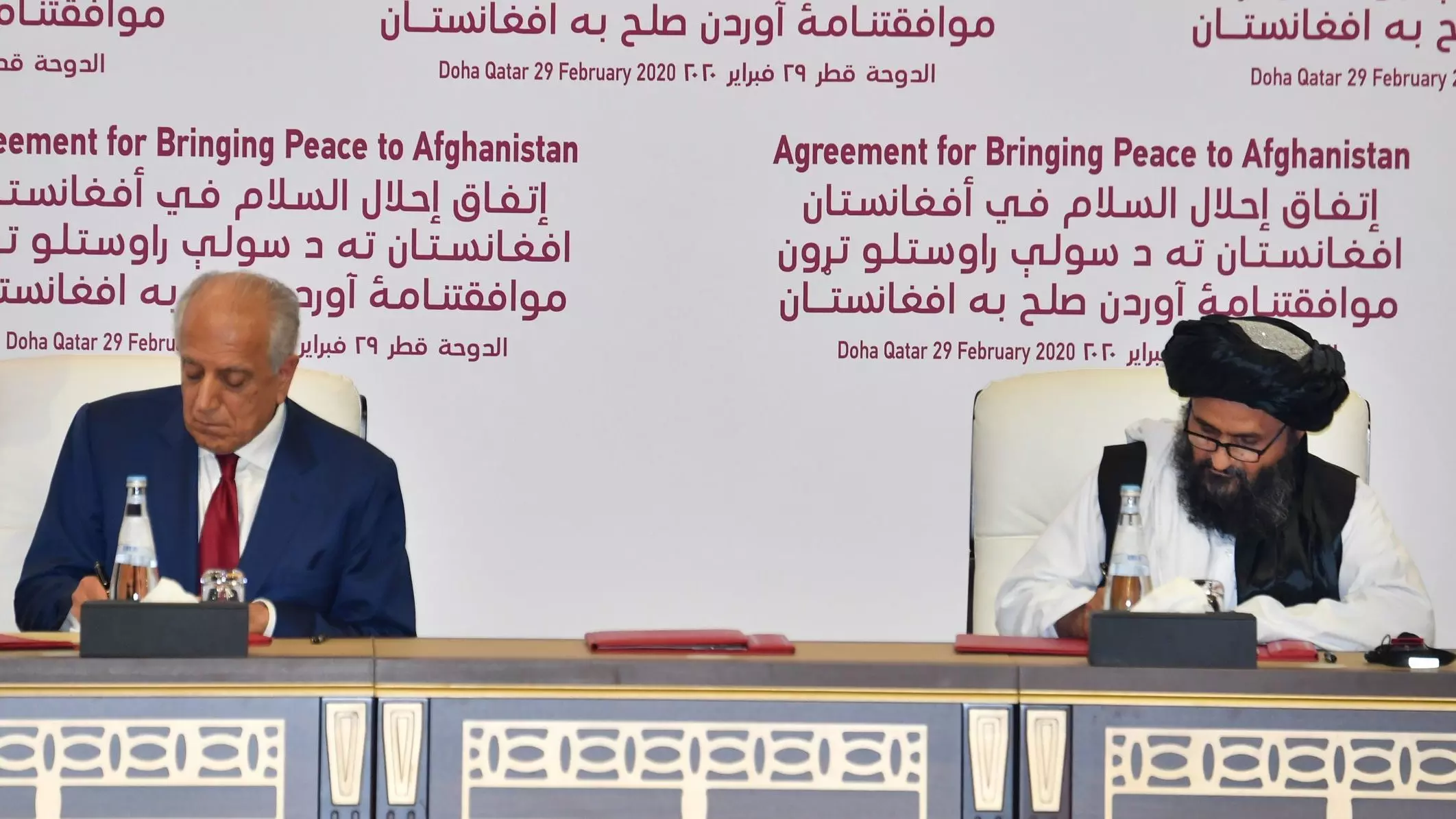
The future of Afghan peace talks
text_fieldsFile picture of Afghan peace talks in Doha. (Courtesy: Getty Images)
With the Istanbul peace summit for restoration of peace in Afghanistan round the corner, the world is apprehensive whether it would would work as intended or fizzle out even before meeting. The summit, should finally give light on whether Afghanistan and its neighbours will have peace and security after four decades of civil unrest and imperialist occupation in Afghanistan which lost its peace following the Soviet occupation in 1979. This is because the Taliban has most recently agreed to take part in the peace talks at the US-Taliban-Afghan government trilateral conference hosted by Turkey only if assured that the withdrawal of the remaining 2,400 US troops under the Doha Accord signed in May 2020, will begin in May.
It was at the initiative of former US President Donald Trump that tripartite talks took place in stages with the Taliban in Doha, the capital of Qatar on several occasions. Trump's successor, Joe Biden, must quickly get out of this complicated military mission that has cost the United States more loss than gains. Hence, the superpower is now ready to engage with the Taliban they deem terrorists and extremists leaving aside the Taliban's chief enemy, the Kabul government. Following the September 2001 attack on the World Trade Center, the Yankees decided to leave the country as soon as possible after fulfilling their mission even as the NATO troops, who had sided with the United States as part of a campaign to hunt down Osama bin Laden, gradually withdrew from the state. But even after bin Laden was captured and his body thrown into the sea, US troops had to remain in Afghanistan to support their puppet government. More than 1.5 million people have already been killed in Afghanistan, including 43,000 civilians. Of this, 2,300 are American soldiers. Statistics also say that about 20,000 were grievously injured. As per Pentagon's figures, 825 billion dollars have been spent on hunting the Taliban. Despite the support of West Asian countries and neighbouring countries including India, for military action against the Taliban and the protection of the pro-US government in Kabul, the United States has been forced to sign an agreement with the Taliban due to the fact that about 35 per cent of the country is under its complete control. In actual fact, the withdrawal of troops had begun early. The reason given for retaining 2,400 officers has been claimed to be for training the Afghan army. But Joe Biden is convinced that no matter how much he trains them, he will not be able to keep the puppet government safe in Kabul unless he has the support of the people. Hence the realisation that there is no other alternative but to bow down to the Taliban.
Taliban is poised to take over the rest of the country as soon as the US army retreats. For a society of tribes, which outsiders might call primitive, you could lead and rule the country in their traditional ways as they have shown under Mullah Umar's leadership. When USSR's Brezhnev sent the red army to Kabul, he hoped to wipe off the tribal culture and practices and enact land reforms and Soviet-style social order. But after nine years and a loss of 15,000 soldiers, 1600 tanks and 1000 warplanes, their forced retreat remains a moral to learn from history. Imperialistic invasion or military might cannot defeat a people who are steadfast and proud in their beliefs and traditions - this is the lesson for everyone to learn, just as Russia and the US have learnt. At the same time, if the Taliban, who slide away from the peace talks with excuses, also dream of assuming power in Afghanistan, they have not learnt the lesson either. If they intend to reunite Afghanistan ruled by different tribal chiefs in different regions and revive the country ravaged by war, they will have to return to compromises, peace talks, and friendly relations with neighbours. As Gulbuddin Hekmatyar, the former Mujahid leader and prime minister has said, the Taliban has to attend the Istanbul peace talks, failing which not only will they not gain anything, but they will also have to confront both the world and the Afghan people. He further asks, "A person or faction that considers himself right and has strong reasons for his position is never afraid to talk to anyone. Attend the meeting, present your reasons to the other side and to the world, this is an opportunity for you, why not seize it?". The Taliban ought to realise that obstinacy will only worsen the situation.






















